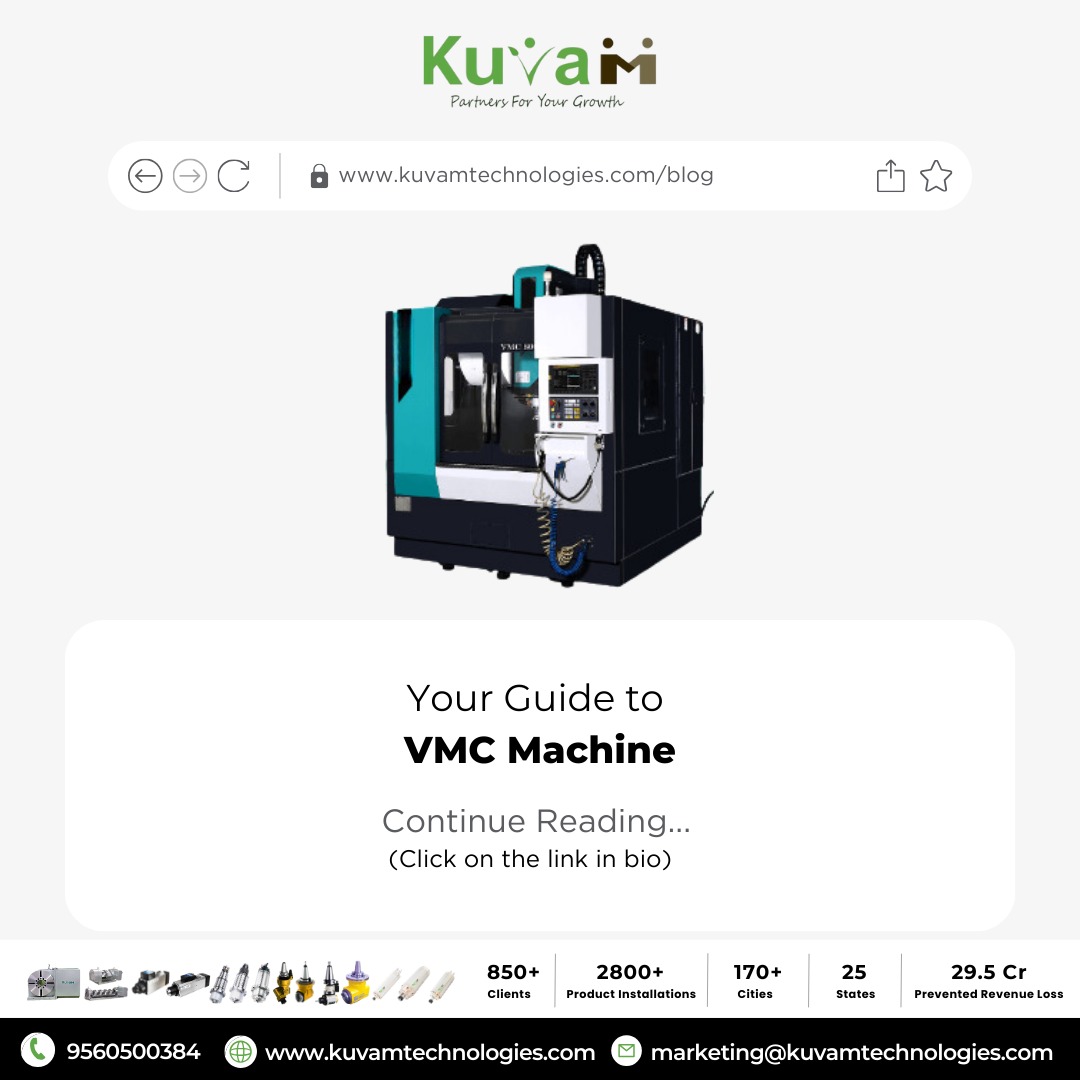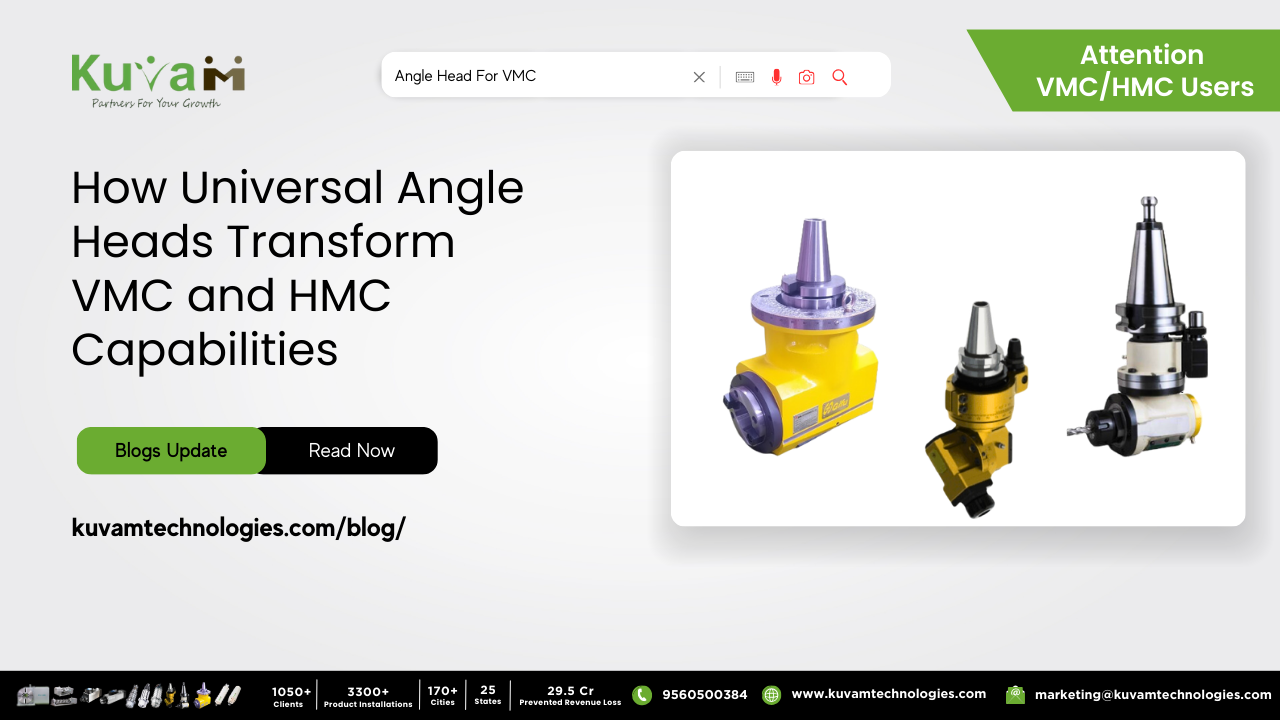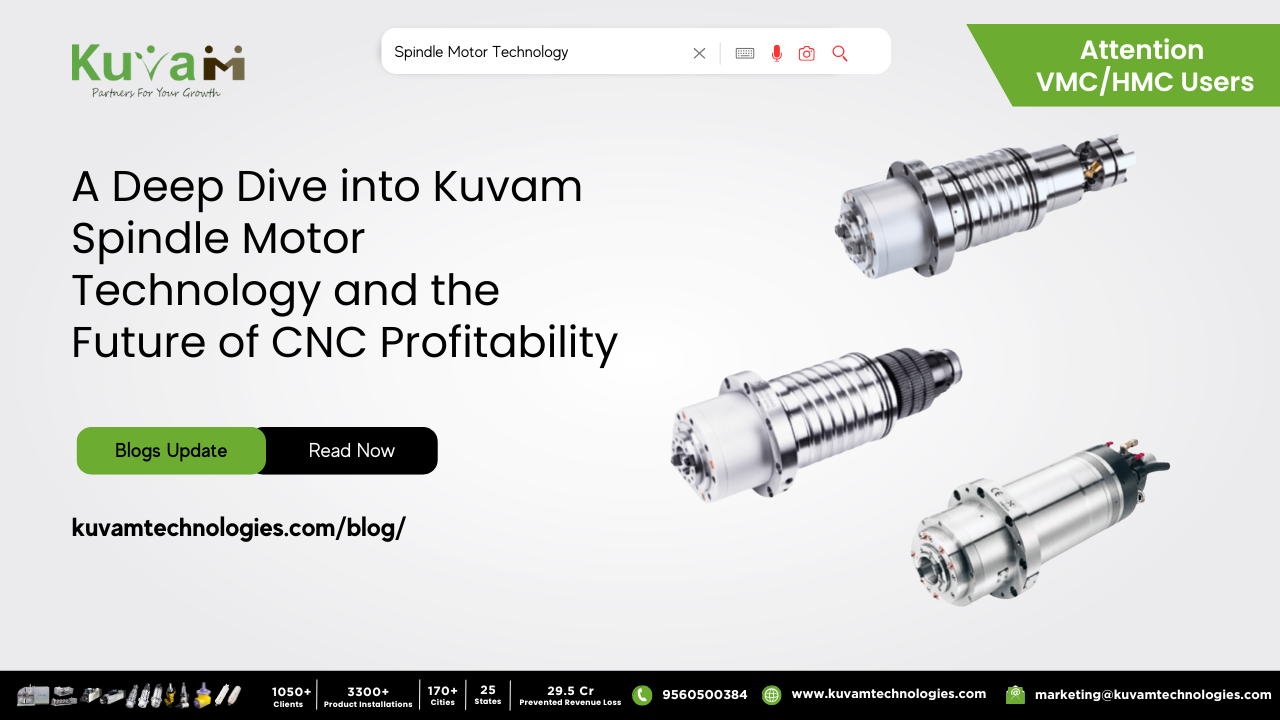Introduction to VMC Machine
Vertical Machining Centers (VMCs) are highly versatile machines used in the manufacturing industry for a range of applications such as milling, drilling, tapping, and boring. With a vertically oriented spindle, VMCs allow precision machining in different types of materials, making them essential tools in industries like automotive, aerospace, and metalworking.
Types of VMC Machine and Applications
VMC machines come in various types to suit different production needs:
- 3-Axis VMC: Ideal for basic milling and drilling tasks where the movement is along the X, Y, and Z axes.
- 4-Axis VMC: Equipped with an additional rotary table, allowing for more complex operations. It is excellent for producing components with cylindrical or curved surfaces.
- 5-Axis VMC: Best suited for high-precision jobs that require the machine to rotate on two additional axes for highly detailed work.
Applications
- Aerospace: Precision parts like turbine blades and engine components.
- Automotive: Gearboxes, engine blocks, and transmission housings.
- Medical: Implants, surgical tools, and intricate parts.
- General Manufacturing: Various metal and plastic components that require precision machining.
Selecting a Rotary Table for VMC Machine Application
Choosing the right rotary table is crucial for improving productivity and precision in VMC operations. Consider these factors when selecting a rotary table:
- Size and Load Capacity: Ensure the rotary table can handle the size and weight of the workpiece without compromising stability.
- Accuracy and Repeatability: Look for high-precision models with minimal backlash for consistent performance.
- Speed and Torque: The rotary table should offer suitable speed and torque based on your machining requirements.
- Compatibility with VMC: Verify the rotary table is compatible with your VMC machine’s controls and setup.
- Manual vs. CNC Control: CNC rotary tables allow for automation and more complex operations, while manual tables may suffice for simpler tasks.
Rotary Table Machine Components & Options
Rotary tables consist of several critical components that contribute to their functionality:
- Table Plate: The surface on which the workpiece is mounted. Choose between T-slot, faceplate, or customized plates based on your workpiece type.
- Worm Gear System: Used to rotate the table, providing smooth and precise movement.
- Indexing Mechanism: Allows the table to rotate at specific, predefined intervals.
- Hydraulic or Pneumatic Clamping: Ensures the workpiece is securely held during machining operations.
- Tilting Mechanism (For Tilting Rotary Tables): Provides additional angular movement, which is vital for 5-axis operations.
Available Options
- Tilting Rotary Table: Offers added flexibility for multi-angle machining.
- Multiple Axis Rotary Table: Suitable for complex, multi-sided machining operations.
- Customized Tables: Designed to meet specific production requirements.
Rotary Table Maintenance
Regular maintenance of rotary tables helps extend their lifespan and maintain performance. Key maintenance tips include:
- Lubrication: Regularly lubricate the worm gears, bearings, and other moving parts to reduce friction and wear.
- Inspection: Periodically inspect the table for wear, damage, or misalignment.
- Cleanliness: Keep the rotary table clean from chips, debris, and dust, which can affect accuracy and performance.
- Calibration: Ensure periodic recalibration for precise and repeatable positioning.
- Seal Check: Inspect seals to prevent coolant or oil leaks, which could damage the internal components.
Selecting the Right Rotary Table Manufacturer
When choosing a rotary table manufacturer, consider the following:
- Reputation and Experience: Opt for a manufacturer with proven expertise and positive customer feedback.
- Product Range: Ensure they offer a variety of rotary tables suited to different machining needs.
- Customization: Some manufacturers provide customized solutions to meet specific industrial requirements.
- Support and Service: Reliable customer support and service are essential for troubleshooting and maintenance.
- Technology and Innovation: Look for manufacturers that integrate the latest technology into their rotary tables for enhanced performance.
For More Information CLICK HERE




